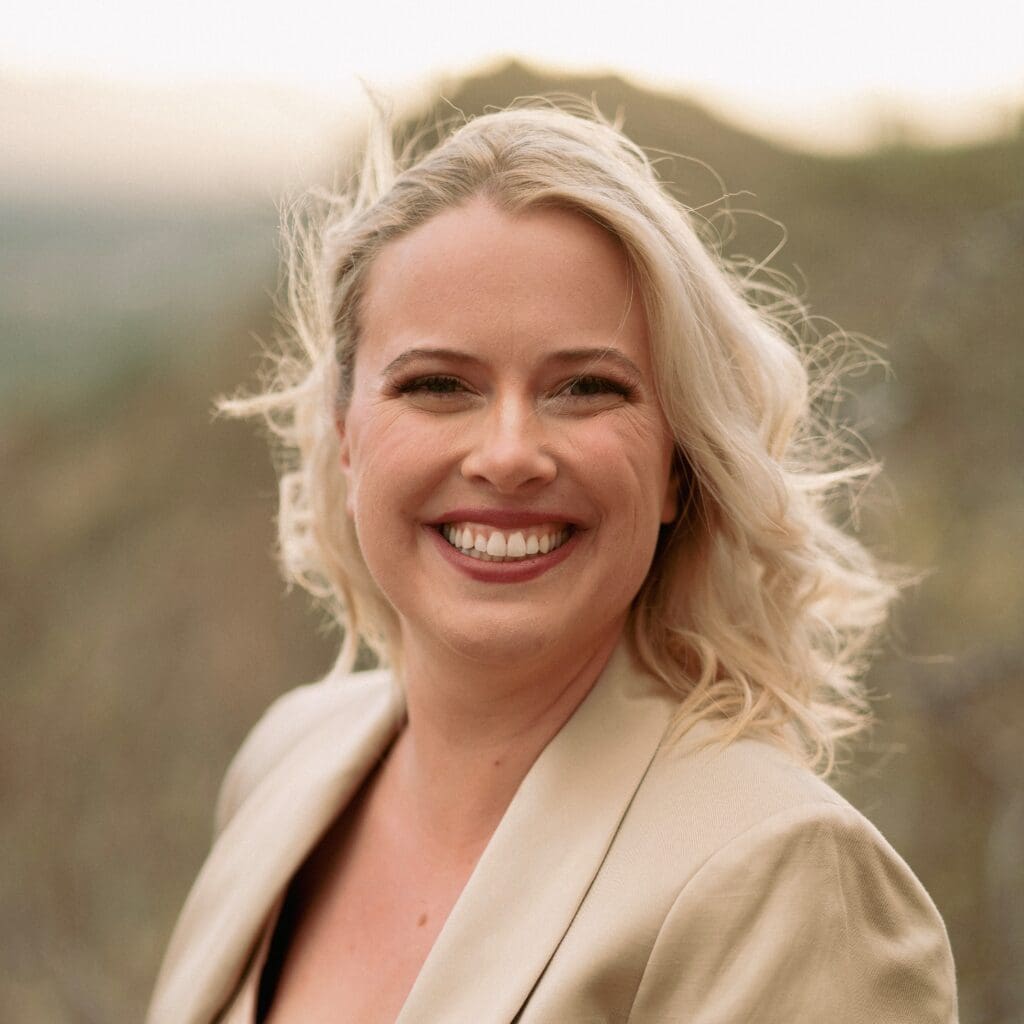
VITAL Blog
Media Contact
Reproductive Rights Reimagined at “Her Power” Summit
The battle for reproductive rights is at a critical moment. In partnership with ICRW, Mama Cash, Sol de Janeiro, and the Women’s Peace & Humanitarian Fund, Foreign Policy hosted the Her Power Summit on March 12, 2025 during the 69th Commission on the Status of Women and 30th anniversary of the Beijing Declaration.
Power of the Purse
ICRW was proud to sponsor Power of the Purse, a compelling art installation by feminist “artivist” Michele Pred, shown at Her Power. The installation featured vintage purses emblazoned with powerful feminist messages such as “Equal Pay”; “Believe Women”; and “Persist”, serving as both art and activism. Through her work, Pred challenges audiences to reflect on the economic and political power of women, underscoring the need for financial and systemic equity.”
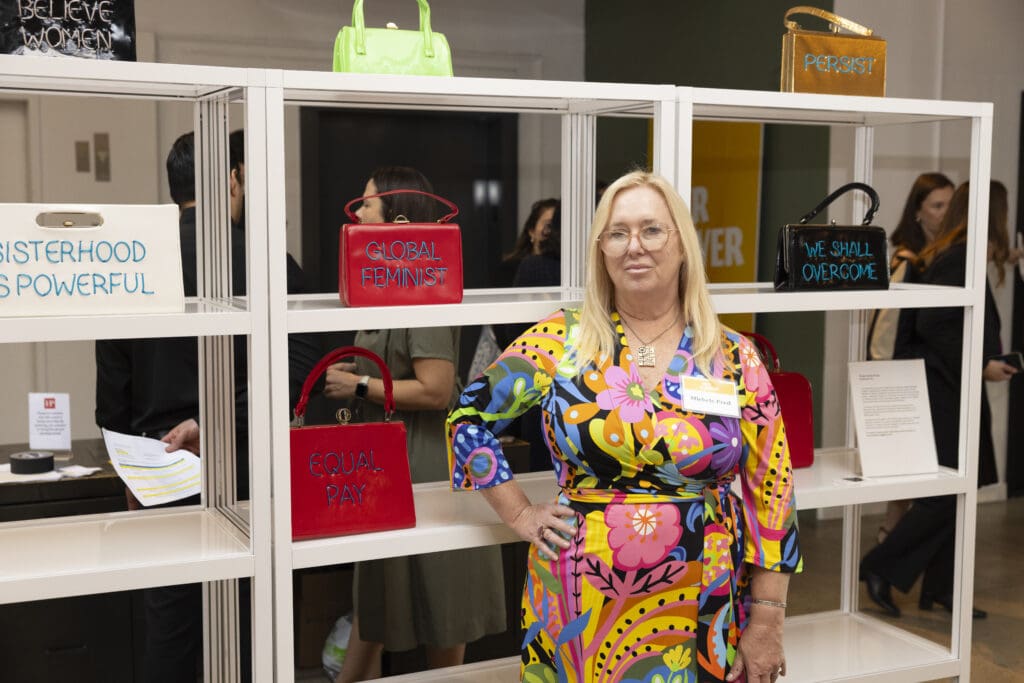 All Photos by Jonathan Heisler Photo @jonathan_heisler_photography
All Photos by Jonathan Heisler Photo @jonathan_heisler_photography
Architects of Change: The Fight for Reproductive Rights
During the panel sponsored by ICRW, Architects of Change: Foundations for a New Era in Reproductive Rights, influential leaders in the movement gathered to discuss the challenges, victories, and the future of reproductive justice worldwide. Featuring Dr. Maria Mercedes Vivas-Perez (Oriéntame Foundation), Giselle Carino (Fòs Feminista), and Kwajelyn Jackson (Feminist Women’s Health Center), the discussion was moderated by Stacey Samuel (Founder & Executive Producer, GTS Media) and centered on the evolving landscape of gender rights, abortion access, and community-driven activism.
A Movement Decades in the Making
One powerful story came from Giselle Carino, who shared the history of the Green Wave movement in Latin America. Argentina’s legalization of abortion in 2020 was not an overnight victory—it was the result of 20 years of activism. The movement has since spread across the region, mobilizing communities and setting a precedent for change worldwide.
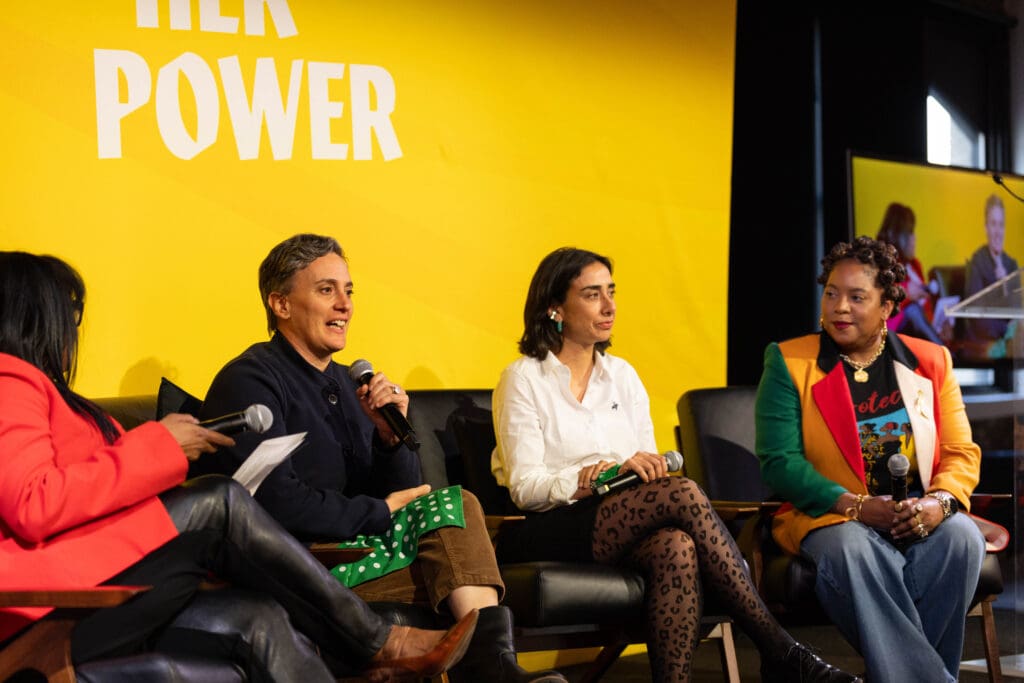
“The Green Wave movement took about 20 years to form. Then, marching in 2020, I saw 15-year-old girls wearing their (green) bandanas on their backpacks, going to school. That gave us the sense that it was a defining moment for their generation. This was their fight. And so in 2020, just two years later, abortion law reform passed in Argentina, then (the green wave) swept through Latin America and the Caribbean.” – Giselle Carino
This victory serves as both an inspiration and a reminder that reproductive rights are constantly under threat. The fight continues not just in Latin America but across the globe, including the U.S., where abortion rights face unprecedented rollbacks.
Post-Roe America: The Reality on the Ground
For many in the United States, the overturning of Roe v. Wade in 2022 was a devastating loss. But as Kwajelyn Jackson pointed out, for millions of people—particularly in the Deep South and Midwest—the struggle for abortion access has existed for decades.
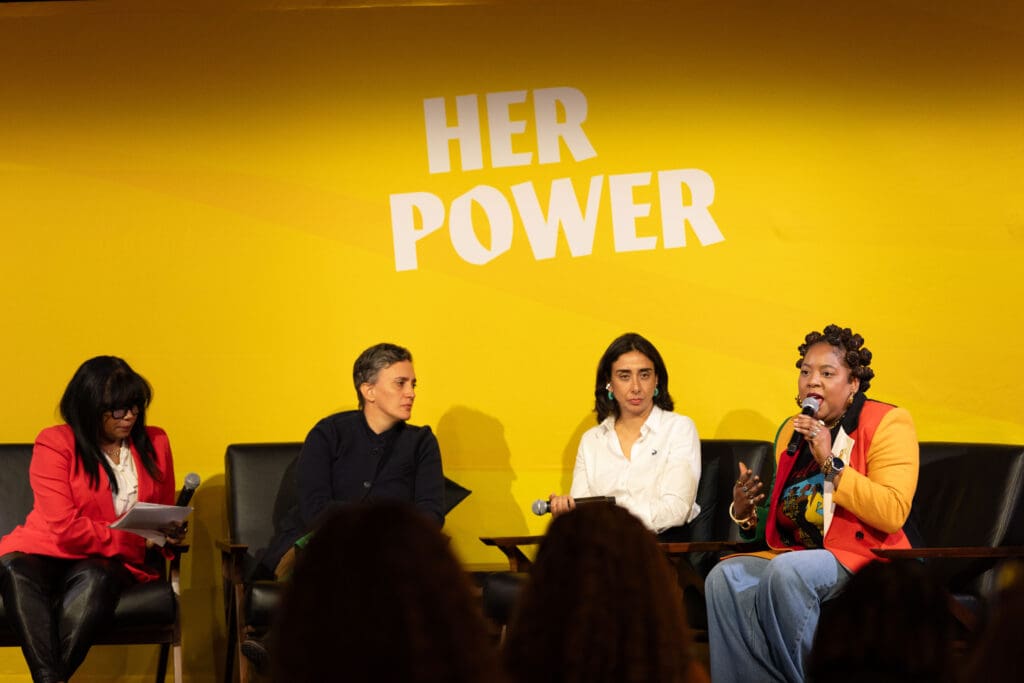
“Many people lived in a post-Roe reality even before Roe was overturned. Travel, crowdfunding for care, and endless barriers have long been the norm.” – Kwajelyn Jackson
Thirteen states have now effectively totally banned abortion, with many others imposing severe restrictions, forcing patients to travel across state lines or rely on underground networks for care. The impact is especially harsh on marginalized communities, where systemic barriers already make healthcare difficult to access.
“When abortion is banned, all pregnancies become at risk.” – Maria Mercedes Vivas-Perez
The Funding Crisis & Need for Global Solidarity
Despite the relentless efforts of activists, the financial resources to support reproductive justice remain shockingly low. Less than 1% of official development assistance (#ODA) goes to support women’s rights organisations and movements (1), a fact that places critical services at risk.
“No one is coming to save us. We have to save ourselves.” – Giselle Carino
In Latin America, funding has become even more difficult due to shifting political landscapes. Doctor Maria Mercedes Vivas-Perez emphasized the importance of partnerships and knowledge-sharing between global movements. The success of reproductive justice efforts in countries like Colombia, Mexico, and Argentina provides a roadmap for activists worldwide.
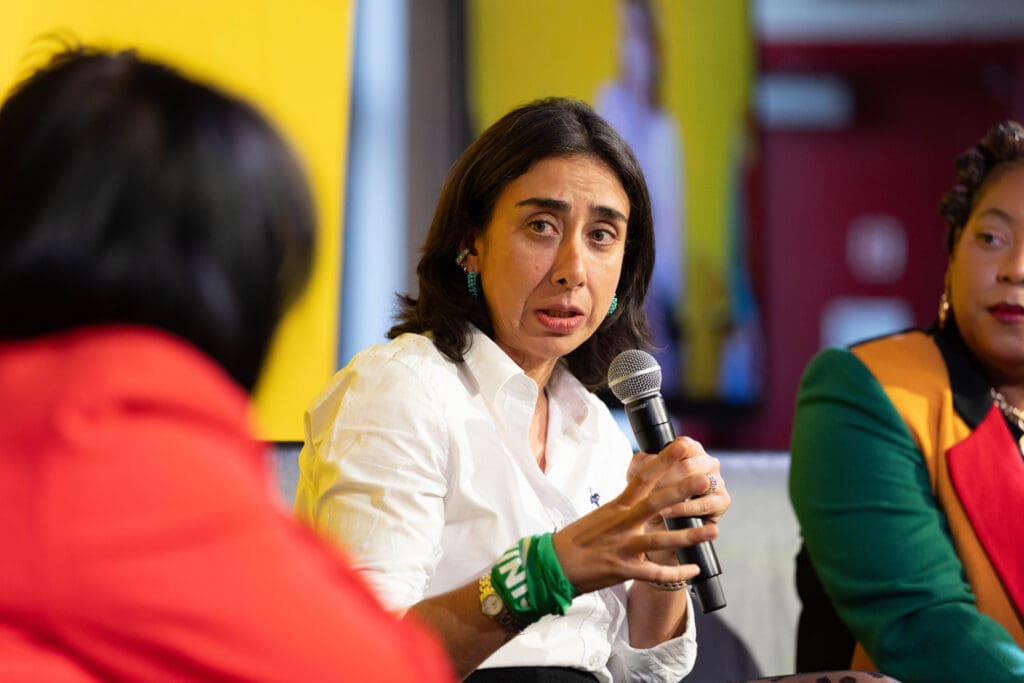
“Every woman I know in the movement is very willing to share all our ups and downs and all our lessons. Look to the South to learn many lessons: (here) everybody plays a very specific role towards a common goal.” – Dr. Maria Mercedes Vivas-Perez
Reproductive Justice & Intersectionality
The panelists also highlighted the intersections between reproductive rights, racial justice, and gender-affirming care. With the rise in maternal mortality—particularly among Black women—it’s clear that abortion restrictions are just one part of a broader crisis.
“Abortion is a canary in the coal mine for what we’re seeing with the bans against gender-affirming care. “ – Kwajelyn Jackson
At the same time, attacks on gender-affirming care mirror the fight against abortion rights, underscoring the need for a unified front in protecting bodily autonomy for all people.
Hope, Resilience & the Path Forward
Despite the daunting challenges, the panelists emphasized the importance of community, persistence, and collective action. The fight for reproductive justice is ongoing, and change is possible when people come together.
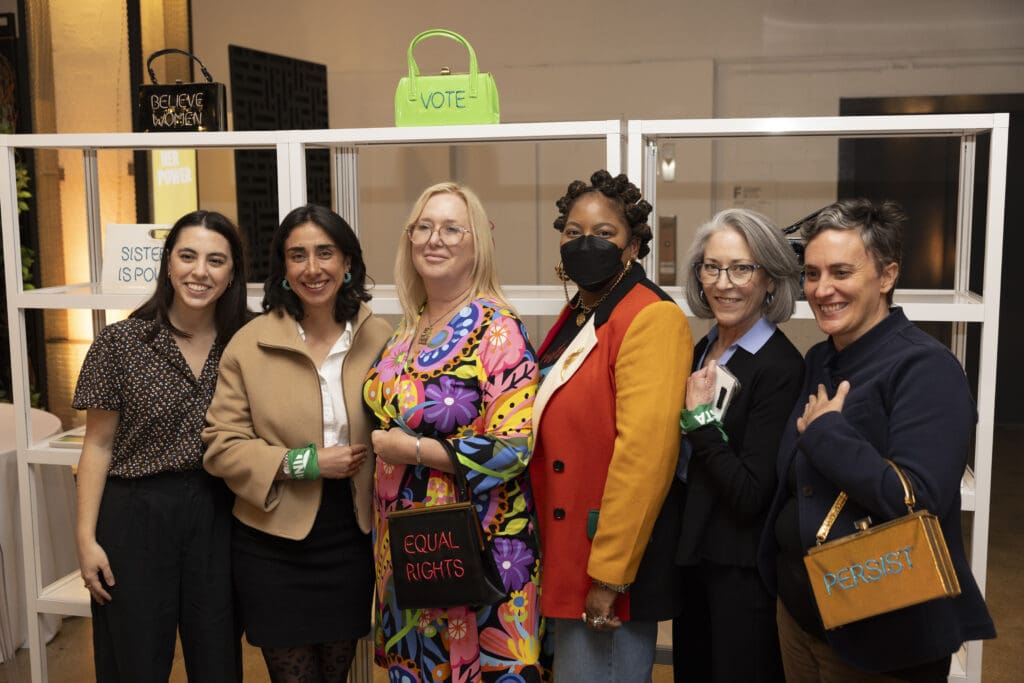
“Hope is found in community. When we come together, we make the impossible possible.” – Giselle Carino
Activists are calling for increased engagement—whether through marching, voting, supporting organizations, or simply starting conversations within communities. Every action, no matter how small, contributes to a larger movement for change.
“This is not the moment to do a lot of picking and choosing, it’s about coming together when we can, where we can, and advance where it’s possible. Connecting with each other across borders has been a source of inspiration. – Giselle Carino
How You Can Get Involved
- Show solidarity by wearing the green bandana, a global symbol of reproductive rights
- Uplift reproductive justice organizations and causes
- Stay informed and educate others about reproductive rights and access. Follow ICRW on our socials @icrworg to see the results of our research and a webinar in June!
The struggle for reproductive justice is far from over, but as this panel showed, progress is possible. By standing together, we can continue to push for a future where everyone has the right to make decisions about their own bodies.

